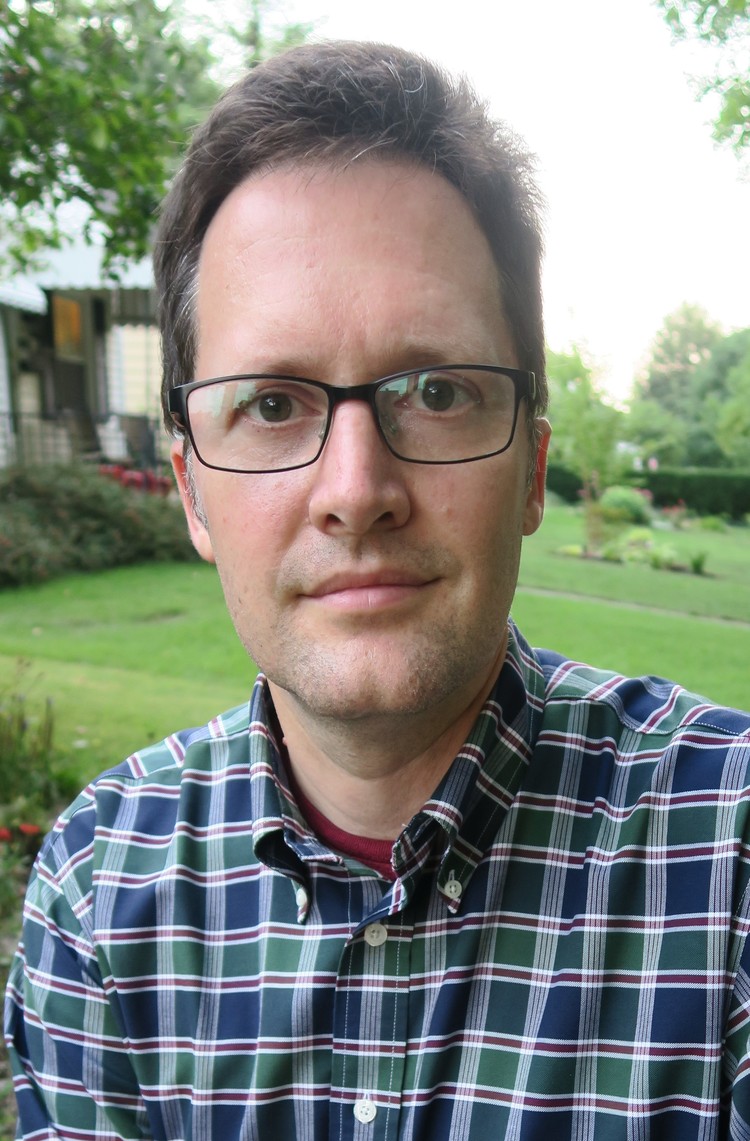I ended up a fan of Lynn Strongin’s poetry by way of Jake Adam York and a book of elegies.
Jake’s role in this started while we attended college in Auburn, Alabama. We worked together on the campus literary magazine and also attended the same writing classes. Then in 2001 we founded storySouth, one of the first online journals to gain attention and acclaim. I edited the journal’s fiction, Jake the poetry, and we divided the nonfiction between us.
We worked separately on storySouth, only knowing which authors and poets the other selected once each new issue neared completion. We also alerted each other to writers we thought the other might want to check out.
“You need to read Lynn Strongin,” Jake told me one day in 2004. He talked at length about her poetry and essays, which he’d accepted for publication later that year in the magazine. I wish I could remember all he said, but two decades have stolen many of those words.
But what remains is that Jake found power and beauty in Lynn’s writings and wanted to share that with me.
Sadly, I was young and busy at the time. I meant to read Lynn’s writings but allowed life to distract me.
In 2006, I was depressed because my grandmother was slowly dying (and would eventually pass away that year on my birthday). I mentioned this to Jake and he recommended I read the new anthology The Sorrow Psalms: A Book of Twentieth-Century Elegy, edited by Lynn Strongin and published by the University of Iowa Press.
This time I took Jake up on his recommendation. I loved the anthology, finding it exactly what I needed to read at that moment in my life. This is an anthology I have returned to over and over in my life, in particular when Jake passed away in 2012 at far too young an age.
I’ve long believed that certain words appear in our lives when we need to hear them. So it was late last year when my father died. As I reflected on his passing and the changes in my own life, a random online algorithm pulled up Lynn’s poem “Legs Silver” for me to read. The poem was originally selected and published by Jake in storySouth back in 2004.
These three lines in Lynn’s poem gutted me:
God gives us hours beyond counting:
Darkening pendulum swings,
fulfillment always a stone’s throw beyond.
I read the poem multiple times over the following days, always returning to how Jake had said I should read Lynn’s poetry. So I set out to do just that, nearly 20 years after his recommendation. And after reading a wide selection of her poetry and learning about her life, I decided that others needed to do the same.
Lynn first began publishing her poetry in the 1960s, where she quickly established herself as one of the vital voices of second-wave feminism. Her writings during this time were published in pioneering anthologies such as 1970’s Sisterhood Is Powerful: An Anthology of Writings from the Women’s Liberation Movement, 1973’s Rising Tides: 20th Century American Women Poets, and 1976’s I Hear My Sisters Saying: Poems by Twentieth-Century Women. She was also an active part of the protest movements during this time period. This includes being an early advocate for disability rights in the United States, having been one of the last people in the country to have her life drastically changed after contracting polio as a child.
Lynn is now in her 80s and it’s not easy to find her earliest poems. Many of the anthologies that originally highlighted Lynn’s work are long out of print. In addition, Lynn published much of her poetry in literary and small magazines that no longer exist, such as The Ladder, the country’s first nationally distributed lesbian publication. Many of her poetry collections were also released by small presses that are no longer around, including Thorp Springs Press and L’Epervier Press.
I contacted Lynn a couple of months ago and asked if storySouth could reprint some of her classic poems that were out of print. She agreed and, to my surprise, also offered a number of new poems for consideration, including what could be called a sequel to one of her most famous poems, “Sayre (Woman Professor).”
Lynn’s poetry is vibrant, gripping, and revealing. In classic works like “From Paschal Poem” and “First Aspen,” we vividly share in Lynn’s dreams of same-sex love in a world that tries so hard to stop that love. In new poems like “Sowing Southland” we see how Strongin’s experience as a Jewish child in the American South of the 1940s impacted her life. Likewise in “Children in Tree” we see how polio and all the aspects of human mortality shaped not only Lynn’s life but the entire world we live in.
For this retrospective I’ve included an in-depth interview with Lynn where she discusses issues of gender and androgyny, trauma and pain, the expectations of society and the hurts we inflict upon each other. I’ve also included an editor’s note with each poem, telling where it was first published along with other information.
I want to thank Lynn for giving me this opportunity to speak with her and to edit this retrospective. I hope people enjoy both her poetry and our discussion.
I also deeply wish Jake was alive to read Lynn’s new poems. In honor of Jake, Lynn has dedicated this special feature to both him and her friend Rodger Scott. In addition, her long poem “Sowing Southland,” published here for the first time, is also dedicated to Jake.
As I say in the editor’s note to “Sowing Southland,” I think he would have loved the poem.

